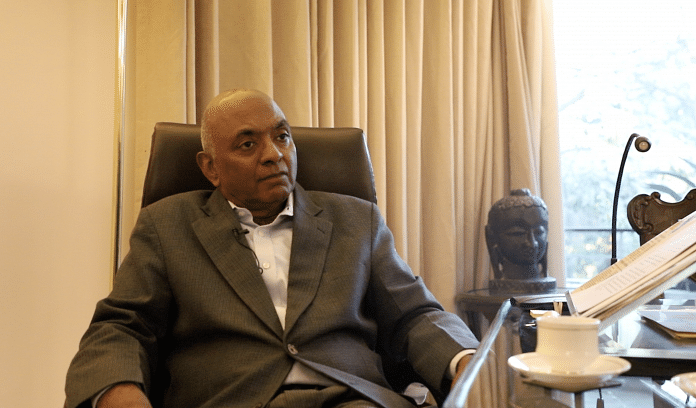Senior Advocate Raju Ramachandran talks to ThePrint about the Supreme Court crisis that still has to be resolved.
New Delhi: Days after four senior judges of the apex court spoke up against the administrative decisions taken by the Chief Justice of India (CJI) Dipak Misra, a resolution is still not in sight. Senior advocate Raju Ramachandran talks to ThePrint on this unprecedented crisis.
Key excerpts:
On allegations against the Chief Justice of India
The letter talks of ‘justices’. It at least talks of one previous CJI and reading between the lines, I think the reference there was to the Kalikho Pul case.
I don’t think that there is something personal against the CJI. I don’t think experienced, disciplined, seasoned judges of the court, judges who are trained not to bring their personal views or prejudices into the decision of cases before them…it would be very uncharitable to think that they could have been actuated by personal motives.
Why is there a crisis now?
In the last two years, perhaps this issue has come into sharper focus only because of a strong government at the entre, just as during the Emergency days, there was apprehension about the composition of benches. I think again because we have a strong government, I’m talking of a government with an overwhelming majority, we are not talking about majoritarianism in this discussion. Allegations or apprehensions tend to acquire a certain seriousness which they may not acquire in a different situation.
How can the crisis be resolved?
The resolution, according to me, would be by indicating, maybe internally—among all the judges—that for this semester, this residuary category of cases will either be heard by the CJI himself or by Bench A, B, or C, irrespective of seniority. Once that is clear, then that should resolve the issue.
There’s no doubt that the Chief Justice is the master of the roster. The question is whether there should be some formalisation of this procedure now, and I think a proper resolution would be to indicate how these sensitive cases would be allocated.
The question, let’s be very clear, should not be of junior and senior judges, because all judges are equal, there’s no doubt about that, but if there is a clear discernible principle.
Does this crisis give the executive the leverage to put tighter controls on the judiciary?
It’s inevitable that when the judiciary is seen as divided, the government—not just this government, any government—the executive would take advantage of that situation. Now, the judiciary needs to get its act together to ensure that that doesn’t happen, and that won’t happen if these issues get resolved amicably.
Since the grievances of four judges have become public knowledge, the manner in which those grievances have been resolved also ought to be made public.
If such a resolution happens, then there is little scope for anyone making capital of this incident.



